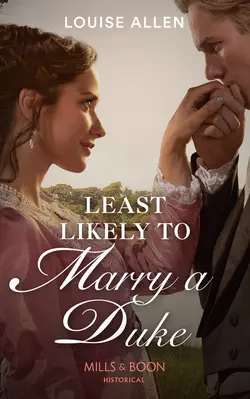Least Likely To Marry A Duke

Louise Allen
Тип: электронная книга
Жанр: Современная зарубежная литература
Язык: на английском языке
Стоимость: 677.35 ₽
Статус: В продаже
Издательство: HarperCollins
Дата публикации: 16.04.2024
Отзывы: Пока нет Добавить отзыв
О книге: A marriage of inconvenience For the buttoned-up Duke! Bound by convention, William Calthorpe, Duke of Aylsham is in search of a suitable bride to help raise his half-siblings. Despite his methodical approach to finding such a lady, he stumbles – quite literally – into free-thinking and rebellious bishop’s daughter Verity Wingate. And when they find themselves stranded overnight on a tiny island, compromising them completely, he knows exactly what he must do…